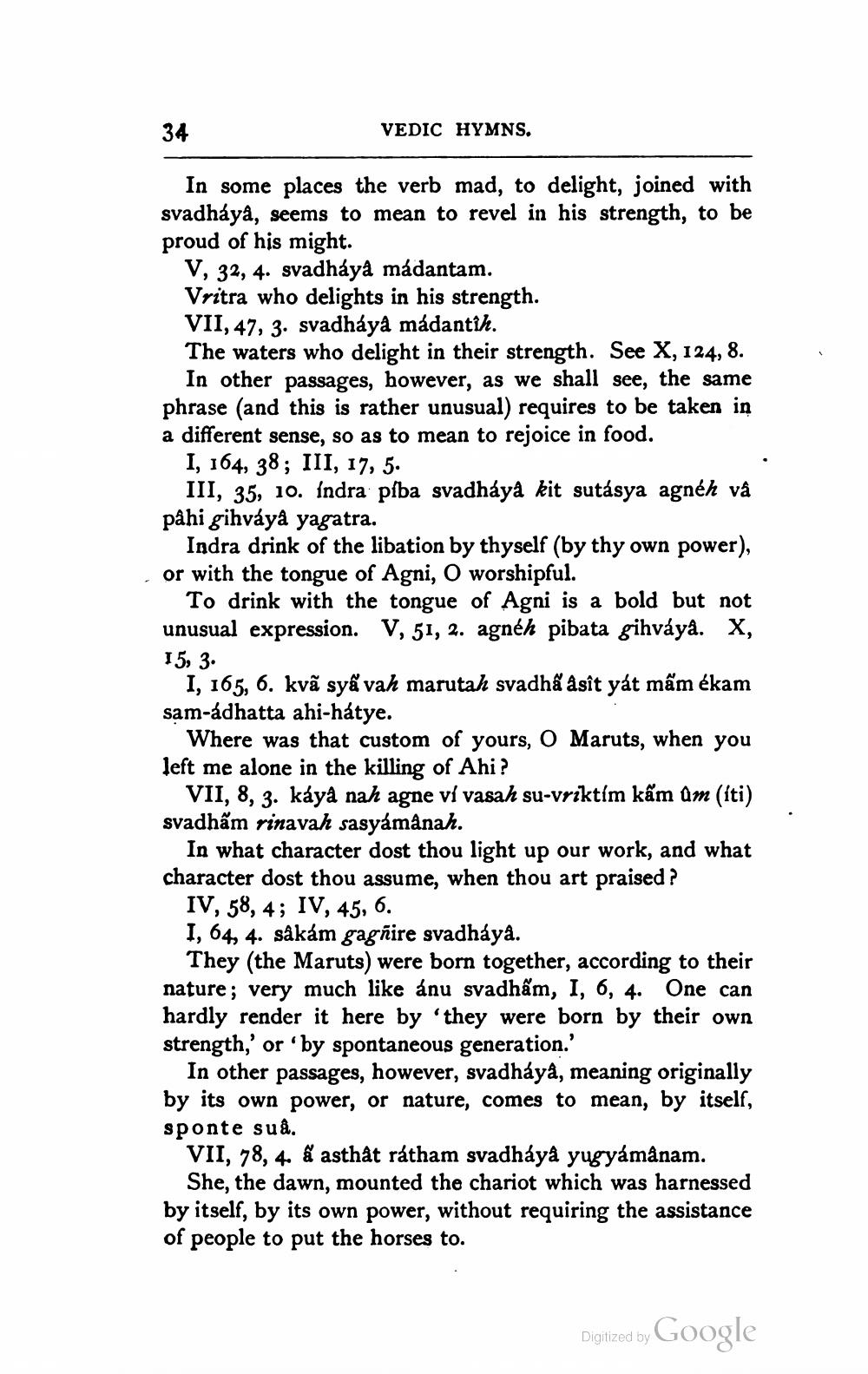________________
34
VEDIC HYMNS.
In some places the verb mad, to delight, joined with svadháyâ, seems to mean to revel in his strength, to be proud of his might.
V, 32, 4. svadháyà mádantam. Vritra who delights in his strength. VII, 47, 3. svadháyà mádantih. The waters who delight in their strength. See X, 124, 8.
In other passages, however, as we shall see, the same phrase (and this is rather unusual) requires to be taken in a different sense, so as to mean to rejoice in food.
I, 164, 38; III, 17, 5.
III, 35, 10. Indra psba svadhaya kit sutásya agnéh vâ påhi gihváyà yagatra.
Indra drink of the libation by thyself (by thy own power), or with the tongue of Agni, O worshipful.
To drink with the tongue of Agni is a bold but not unusual expression. V, 51, 2. agnéh pibata gihváyà. X, 15, 3.
I, 165, 6. kvã syā vah marutah svadha asît yát mấm ékam sam-adhatta ahi-hátye.
Where was that custom of yours, O Maruts, when you left me alone in the killing of Ahi?
VII, 8, 3. kaya nah agne vi vasah su-vriktim kấm um (iti) svadhấm rinavah sasyamanah.
In what character dost thou light up our work, and what character dost thou assume, when thou art praised ?
IV, 58, 4; IV, 45, 6. I, 64, 4. såkám gagñire svadháyä.
They (the Maruts) were born together, according to their nature; very much like anu svadhấm, I, 6, 4. One can hardly render it here by 'they were born by their own strength,' or 'by spontaneous generation.'
In other passages, however, svadháyâ, meaning originally by its own power, or nature, comes to mean, by itself, sponte sud.
VII, 78, 4. & asthật rátham svadháyà yugyámånam.
She, the dawn, mounted the chariot which was harnessed by itself, by its own power, without requiring the assistance of people to put the horses to.
Digitized by Google




